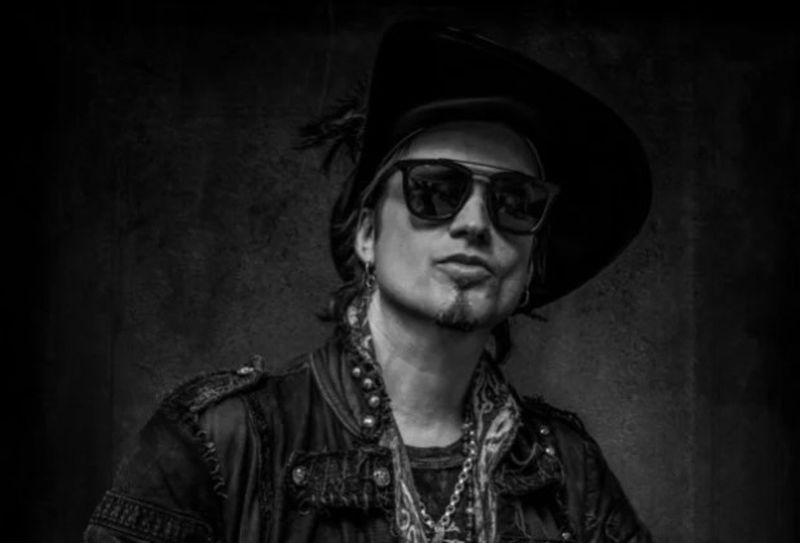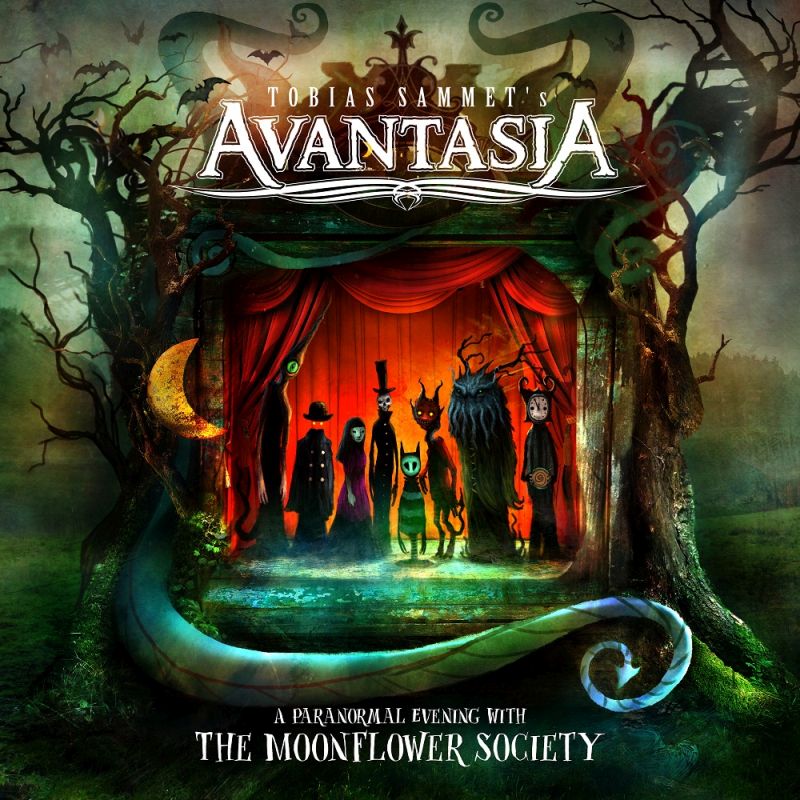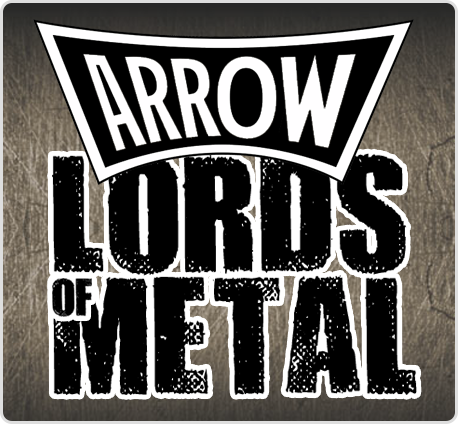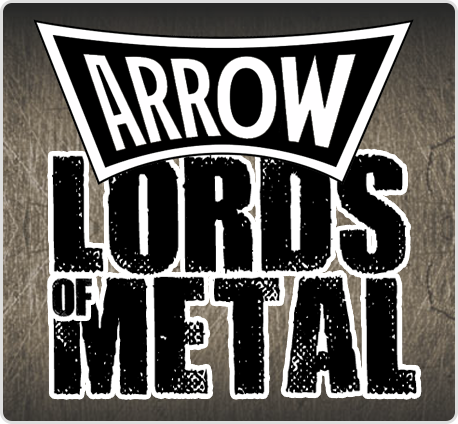
Tobias Sammet (vocals, guitars): “In general art is always a melange of what inspires you and then you add your own character and personality to it and out comes the result, the work. Credit where credit is due, I am not afraid to pay respect and tribute to what inspires me.”
Het is altijd een plezier om Tobias Sammet te spreken, of dat nu in levende lijve of via de telefoon is. Hij blaakt altijd van levenslust, of het nu over Edguy gaat of over Avantasia. Onze guitige ondernemende muzikant is de afgelopen jaren echter ook op zijn limieten gebotst. Vandaar dat Edguy tijdelijk in de kast ging en we drie jaar na ‘Moonglow’ een nieuw Avantasia album kunnen verwelkomen. Opgenomen in de eigen studio, maar onder bezielde leiding van Sascha Paeth en Miro uiteraard. Onze enthousiaste gesprekspartner neemt geen blad voor de mond als het over het ontstaan van het negende Avantasia album ‘A Paranormal Evening With The Moonflower Society’ gaat. Of hoe fantasie en realiteit verweven werden in een nieuw meesterwerk…
Vera Matthijssens Ι 27 oktober 2022
You built a new studio. That triggers me. You always went to Sascha Paeth’s studio, so what was the reason for that and when did you start with that?
I had built a studio for the ‘Moonglow’ album and I built a new one for the new album, because I said to myself: okay, other men have their man cave, they have a movie theatre in their house or model trains and I said okay, it is my profession, so I need a professional studio. So that was part of it, but also part of it was that I wanted to work independently. I was getting tired of going to Sascha’s place three times a week, driving 300 kilometres one way to sing maybe for three or four hours and then went home. I spent more time on trains than somewhere else. So I thought it was more convenient if I had a good idea, I could just sneak down into the studio and work on it. I had the best teacher for studio work that I could imagine, Sascha, and Miro also. It is not really a home studio, it is really modern, quite little, but it’s got mastering standards. So if I would, I could master here, but I cannot do that and I don’t have those ambitions. Yet it is great to be working here. I am right now sitting in the studio while I am doing this interview, whenever I close the studio door behind me, I am in a different world. Time stands still. It is a place where clocks freeze, as some very intelligent person once put it, I really enjoy being here and it has a very high technical standard and I can work any time of the day. You know, when I had a good idea in the past and I had to fly to Sascha and it took me a day of planning. Now it takes me five minutes to turn on everything and I am here and I am recording within three minutes.
I understand the comfort of it. So it was not the isolation in pandemic that made you come to this…?
No, The construction company had started to turn the place upside down in January 2020. We were finished in April – something like that – it was right before we knew anything about the pandemic. I don’t know if I would have built the studio if I knew there would be a pandemic that would turn the music business upside down, but then again I have to say I was really enjoying having a place to retreat and to work.
How did you actually experience the isolation during the covid-19 times? As a disaster or was it secretly welcome?
It is really hard to say, because of course it was mentally challenging for all of us. With the insecurity and uncertainty about what would happen in the future and with all the music business falling apart, but when I was in isolation I did not care too much. I have never been too social. I don’t socialize that much, I don’t go out and drink and do those things. When I am not on tour, I am home a lot anyway. It gave me the chance to not leave the house, even to work and to be creative and to keep my sanity. It helped me a lot. I didn’t think too much about what was going on outside. I went in here, I closed the studio door behind me and I was surrounded by my muses and my inspiration. That is also part of why the album is called ‘The Moonflower Society’, because I was surrounded by members of the moonflower society. They gave me strength, they took me over to my imagination and that kept me sane. My ideas and those creatures or entities that I encounter when I disappear in my own imagination and my invisible friends so to speak. They came out at night, when I was alone in my studio, and they are the moonflower society in essence.
Yes, because there are more familiar faces on the album as guests, only two new ones. I think it was necessary that you have loyal persons around you this time, isn’t it?
Yeah, of course. Avantasia, we are like a family after all. We have this worked out group and we are there for each other and we are in constant contact. And of course now people are asking me: why are there only two new members of the family there? The answer is simple. I don’t want to turn Avantasia into a band that just uses the effect of novelty to impress people. I want to enchant the audience and myself with the songs. I want to put them in the centre of the attention and make them the point of focus. I want those songs to be recorded by people who can really transport the magic of those songs and those people that I work with – Bob Catley, Eric Martin, Michael Kiske, Jorn Lande, Geoff Tate, Ronnie Atkins – those people are very important to my inspiration and to my imagination. They put me on fire when I am creative and that is why it is so important to make the songs exactly what they need, so the truth is that I worked with the best possible people for this record, not only because they are friends, but also because they are doing an amazing job with filling these songs with life.
That is a typical question: why not more new people?
Yes, I understand it, because in the early days Avantasia was a lot about the names. A gimmick is always welcome. It is always good to have a tool for promotion, but I think it is more important to have the quality. Nobody will tell about a song which is crap, but has a great singer on it. It is all about great songs and great singers. I try to put the song itself in the centre of attention and they are all great singers that I have, so I try to get away a little bit from that. It is very common in heavy metal. There are a lot all star projects and musicians from super groups etcetera, but then, when you listen to the songs, they are put together by song-writers who deliver 200 songs a year. Sometimes I think it lacks a bit of character. I try to put the songs in the centre of attention.
You manage to maintain your own sound, even though I have the impression that some songs, for instance the ones with Michael Kiske on vocals, are written with a wink to Helloween…
Absolutely. I don’t try to deny that, because everybody knows that without Michi there would maybe not be Avantasia. He was there – even without Helloween I would say – when I started Avantasia, it was part of the reason – not all of the reasons, but part of the reason was that I wanted Michael Kiske to sing in a heavy metal band, because he had been fired from Helloween and I thought ‘what a waste!’ ‘what a shame!’, what a great loss for songs like ‘Future World’ and ‘I Want Out’. So I said, okay, I am going to do something and work with him. On the record there was also Michael Weikath and Marcus Grosskopf, so Helloween has always been a huge inspiration to me and whenever I work with Michi, there is this Helloween DNA and roots. It is always there, because I think this type of music, that original Helloween sound, is in my DNA.
It is nice that you can make a compilation of your favourite music on every album, what really formed you…
Absolutely. It is a combination of all the stuff. In general art is always a melange of what inspires you and then you add your own character and personality to it and out comes the result, the work. That’s what I am always doing well and I never try to deny my roots. You can hear there are influences of Pretty Maids, of Queensrÿche, of Magnum, even of Nightwish, even though when I started out there was no Nightwish, but I really have a lot of respect for Tuomas and when you like something, subconsciously I think there is always an influence. You cannot deny it. Credit where credit is due, I am not afraid to pay respect and tribute to what inspires me.
Was it easy to work with Floor Jansen, because I read in the first instance she had her doubts about the song ‘Misplaced Among The Angels’?
It is very easy. I asked her: ‘Are you interested to do Avantasia?’ and she said ‘oh yeah, sure’. I sent her the song I had written, ‘Misplaced Among The Angels’ even before I was thinking her having on the song. I thought afterwards: ‘oh she would be perfect to sing this song’ and after I sent it to her, she got back to me and said: ‘I can do it, but maybe it is not exactly my range’. And I said: okay, don’t worry, I am going to write something else.’ and I wrote ‘Kill The Pain Away’ specifically with her in mind. I sent the song to her and she said: ‘that’s perfect, I am going to do it’, and a couple of weeks later – not many weeks later – she did it in her own studio and she sent both tracks back to me and said: ‘here are the songs, you know what Tobi, I also did ‘Misplaced Among The Angels’ and I think it works well’. It was not difficult at all, she was very, very nice. Given the fact that she was very busy at that time, I don’t take it for granted and I am very happy about her contribution. She was top notch, very professional, very good quality and very nice. Sascha has known her for a long time, because he produced After Forever, so it was not difficult at all.

That is nice, and what about Ralf Scheepers from Primal Fear?
He was not difficult too. It was really funny. I wrote the song and I worked on the song ‘The Wicked Rule The Night’ and I thought: ‘okay, Ralf has to sing that song. He needs to sing that song. It was perfect for him.’ It has a little bit of that typical Helloween, Gamma Ray part in there, a bit of Judas Priest… overall he is the perfect choice. I had his phone number. We have known each other for a very long time and I got in touch and said: ‘okay Ralf, I have an Avantasia song for you. You have to sing it. This is not a request, this is a command’. (laughs) A power metal command haha. I sent it to him at 9 o’clock at night, he got back to me and said ‘I love it. Give me a week. I got a lot of other things to do, I will sing it, I love it’. The next morning, at 11 or half past 11, I got a text message from him, saying ‘check your e-mails’ and he had sung it. It didn’t even take fifteen hours and I had the song back. Sometimes, when somebody is that enthusiastic, it leads to nailing the song down perfectly. And that is infectious. After a few weeks I said: hey, just one question. What can you do next Summer? Do you have a lot of work going on or could you imagine going on tour with Avantasia? He said: ‘perfect, let us do it’ and that was it! He is lovely and he is a perfect match and he fits the Avantasia family beautifully. I am surrounded by so many great singers!
But you do very well yourself, in every song you seem to be a vocal chameleon…
Yes, I try to be like a lyrebird. Those are these Australian birds that take over the voices of anything, from car alarm to sledgehammer. You have to google it! They exist! I have seen one in real life. It is impressive. It is like a living creature of samplers. It imitates everything, sounds. It also imitates construction sounds. It imitates a car alarm and you cannot tell the difference between the real thing and the imitation. It is like a voice box. I am a little bit like that, because I am so inspired by the people I work with. It is really funny. When I write a song for Bob Catley for example, I have it in my mind and I can imagine it in my head, it almost sounds like the real thing in the end. That is just because I am such a fan of these voices and the people I work with. I study their work so well, not in theory, but as a music lover. When I write something for Eric Martin or Ronnie Atkins, I can hear those songs even before I recorded them. It is hard to describe. A better singer, I try to imitate him and sometimes I think it is funny. Geoff Tate once said: ‘It is hard to tell his voice from my voice’, but we have to find out who is singing what for the live version. Sometimes it is really funny.
Is there a kind of story going on in the record or all separate stories?
Separate stories, but they are all placed in the same world and I try to get rid of the idea of delivering a plot, a musical or a rock opera, because I thought, at this stage in my life, I wanted to get rid of certain things and I want to write things off my chest and I want to put my thoughts and my burdens in those songs and wrap them into fantastic scenes. I started with a concept in the back of my head. I started to write a concept and as a guideline it still served me in the back of my head somewhere, but I try to abandon the idea of explaining a plot to people, because that is so limiting. I needed the liberty to write things off my chest and not focus on displaying a storyline to the listener, because then it is more like giving a service to the listener. I didn’t want to give a service to the listener, I wanted to write about what I had in mind. It is subconsciously, when you start writing a story in advance, for some reason it serves you as a backbone, to place your individual music and lyrics and scenes in a cohesive world. The lyrics are very imaginative, they are very strong and they have a narrative poetic approach, but they are individual lyrics and you can single them out and have an individual lyric with every song.
But I think we can still see them as entering a world of fantasy?
Absolutely. I would say it is almost like a picture cycle or you can say a song cycle. They are evolving around the same topics, they are all placed in the same setting, but still you don’t really need to hear song number 3 to understand song number 5. There is a framework around it. The first song ‘Welcome To The Shadows’, is a perfect invitation to this fantastic world, almost through the imaginary of a theatre, run by the moonflower society. So ‘Welcome To The Shadows’ is that kind of intro that takes you onto that journey that drives you down the rabbit hole as Lewis Carroll would say, there is still some order to it in a way.
Indeed, because you end with the grand finale ‘Arabesque’…
I know this song is very powerful and some people would probably say it doesn’t make sense – like Sascha said that in the beginning, because it is stylistically so hard to grasp. It is everything and nothing at the same time. What are we trying to say with it, he asked me. It starts like with Celtic bagpipes, then it turns into something Arabian, then it becomes a Black Sabbath kind of song, in the chorus it becomes a bit Carmina Burana ‘O Fortuna’ and then in the mid section there is seventies prog rock and Queen and some rock music. What’s the point, it is a mess, he said. I said, yes but isn’t life a mess as well and I needed that song lyrically. It is one of the most important for myself, because if you read it as a fantastic journey through different emotions, it works, but it is also about my life and the challenges of life. The challenges of taking individual threads and putting them together to one ornament. In life there many expectations: your own expectations, your friends’ expectations, life and business and outside expectations, but there is also your own longing, your own yearning, your dreams, your duties… and you need to bring that all together and weave those individual threads together to one beautiful ornament and that’s basically the concept of life. As well as in the song musically, but that is also the concept of an arabesque pattern. These individual shapes and forms and threads and they are put together to one beautiful arabesque ornament and that is how I came to the song and lyrically it is probably the most important song for me on the record. Very deep and very personal. It deals with me, almost being swallowed by expectations towards me. I am not speaking about musical direction or anything, but expectations. When I started out as a musician, everything came naturally, everything was innocent. You are playing music, you are writing music, you are going on tour, you are writing another album, you are producing it, you are managing the band. Then you start to repeat yourself. You are doing the same thing, with Edguy, with Avantasia, again with Edguy, with Avantasia and at some point in my life it was like people were expecting me to keep that pace, but the older I got, it became more difficult to keep that pace. People had no mercy, especially my working environment. People asked me: when will you play Wacken next with Avantasia? And with Edguy? I was like: what if I don’t play there at all? There was no room for me. I had created too high expectations, also by making an Edguy album when I just couldn’t do it, because of the problems with my ears. We had different views within the band, it was getting difficult, even though we were getting along great. But we needed that break, I needed to say: ‘no no no let us all go individual ways and do something later on, not now. When I said that; nobody outside seemed to understand, it was as if people were pointing a finger at me and said ‘hey, you should work faster’ and that inspired me to write that song ‘Arabesque’. It was because I was about to drown in work. That was the case with me. In 2008 I had my first hearing loss on the right side. It was gone for two weeks or something like that. It came back, but I did not hear the signals. I said okay, my duty is to deliver, so what did I do? I said, okay, I almost lost my hearing doing something that I love. Writing music and playing music and just having a heavy pace. So it is better to lose your hearing with something you love than losing your hearing while doing something you don’t love. I am going to call the next album ‘Tinnitus Sanctus’, that was how I got to the title of that Edguy album. I covered the whole thing with humour. But it was insane. I couldn’t go on at this pace and now I try to slow down things a little bit. It was not the pressure of my band mates, but I had made up the pace and I had created a Frankenstein life style that would eat me up, while I had created it. In that sense I think that was the only positive thing about the pandemic. I was forced to slow down and nobody was asking questions. I was out of the line of fire, it was not my responsibility this time and that was a benefit.
And that brings us back to one of the first questions I asked you. Did you secretly welcome the calmer style of life during the pandemic…




